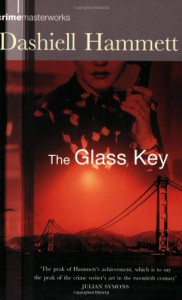11
Followers
23
Following
Reading Slothfully
I was told in elementary school that I only could read at half the speed for success in college. Oh well, one benefit of slow reading is you get to live with the characters a longer period of time. I read in a vain attempt to better understand people. At my other homes, I'm known as a spouse, pop, guy in the choir, physical chemist, computer/web dilettante and child-care provider. In theory, I'm a published author, if you consider stuff like Quenching Cross Sections for Electronic Energy Transfer Reactions Between Metastable Argon Atoms and Noble Gases and Small Molecules to count as publications. I've strewn dozens of such fascinating things to the winds.
Currently reading
Twenty Thousand Leagues Under the Seas
The Spirit of the Border
Ramona the Brave (Ramona, #3)
The Underground Man (Vintage Crime/Black Lizard)
Delilah of the Snows
Mrs. Miniver
Betsy-Tacy Treasury (P.S.)
A Christmas Carol
The Way Some People Die
Envy of Angels
The Glass Key
 Somewhere, I read that not all hard-boiled fiction was throw-away dreck, but that some of it was actually good literature. The examples given included a number of Raymond Chandler novels and Dashiell Hammett's The Glass Key. I guess I don't see it. This wasn't a horrible book, but I've read lots of pulp fiction that is just as good, but which no one would ever deign to claim to be literature. Raymond Chandler might well be, but I've yet to read anything of Hammett that isn't rather wooden and stupid, with the possible exception of The Maltese Falcon. The only reason The Thin Man is famous is that some Hollywood types made a fascinating series of movies out of a vague semblance of the idea first lined out by Hammett.
Somewhere, I read that not all hard-boiled fiction was throw-away dreck, but that some of it was actually good literature. The examples given included a number of Raymond Chandler novels and Dashiell Hammett's The Glass Key. I guess I don't see it. This wasn't a horrible book, but I've read lots of pulp fiction that is just as good, but which no one would ever deign to claim to be literature. Raymond Chandler might well be, but I've yet to read anything of Hammett that isn't rather wooden and stupid, with the possible exception of The Maltese Falcon. The only reason The Thin Man is famous is that some Hollywood types made a fascinating series of movies out of a vague semblance of the idea first lined out by Hammett. This book makes it rather an burden trying to figure out the actual relationship between the protagonists. Eventually, we do figure out that Ned Beaumont is a hanger on, and perhaps sometimes fixer, for a political boss, Paul Madvig. They are concerned with the re-election of Sen. Ralph Henry. Madvig is in love with Henry's daughter, although she only plays him along because she wants Madvig on her father's side come election time. The trouble begins when Beaumont finds Henry's son, Tyler, lying murdered in the street.
The actual plot might be interesting, but the characterization is bizarre. Beaumont is allegedly the brains behind Madvig, the political boss of the city. But he's stupidly impetuous and is constantly barging around getting himself into trouble and is almost incapable of rational human communication with other human beings. He's curt and dismissive to a fault. So how is someone, who does stupid things and who has very little skill at diplomatic communication, capable of being a trusted advisor of a political boss? It just makes no sense. I think the plot outline, in the hands of a capable author might be turned into something well worth reading. In the hands of Hammett, it's just another piece of throw-away pulp fiction. Ok for reading on the commuter train, but not something you'd want to savor on a comfortable evening by the fire in December or on a lake side in August.













